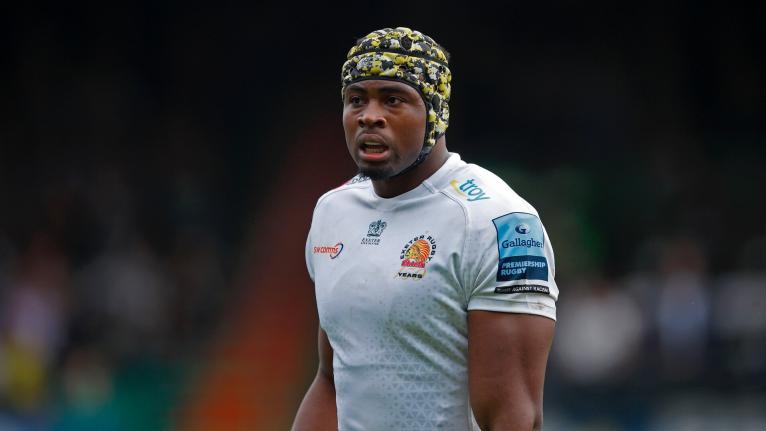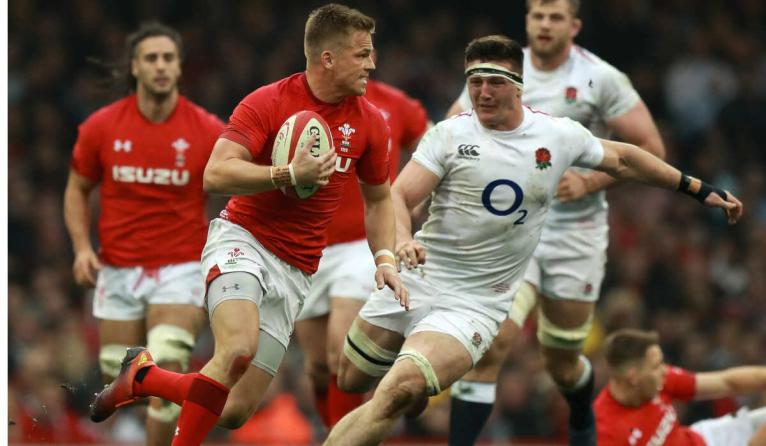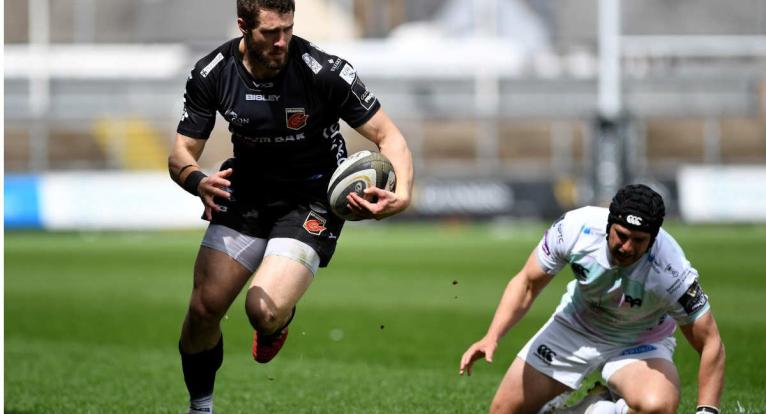A little less than a year ago, Wayne Pivac had the pallor of a coach under pressure. By the end of the patched-together 2020 Autumn Nations Cup, Wales had lost seven out of 10 games in 2020, with wins over limited Italy and Georgia sides, and the natives were getting restless.
On many occasions, the New Zealander must have wandered past the wrought-iron ‘Gatland’s Gate’ outside the Principality Stadium and privately cast envious eyes at the rock-solid place his compatriot held in the affections of his adopted nation.
Then came an upturn. An improbable Six Nations trophy, which was agonisingly close to a Grand Slam, and the complexion changed. It bought the Wales head coach that precious commodity; time.
After a forgettable summer series that was signed off with a turgid performance and defeat against Argentina, his get-out-of-jail-free card was 12 members of his first team out in South Africa with the British & Irish Lions. It means he will approach this demanding autumn series marginally in credit and, listening to him speak at a hastily-arranged press conference this week, his relaxed demeanour suggested that, barring a calamitous run of results, he will be in situ to lead Wales to France 2023.
His predecessor repeatedly filled his autumn by facing the toughest sides on the planet, arguing that it was necessary as a litmus test to where his squad stood, and year after year, the results were hardly awe-inspiring. Gatland chalked up just five autumn victories in his 22 fixtures against New Zealand, Australia and a horribly out-of-sorts South Africa under Allister Coetzee. The bar, then, has been set at a fairly modest height in the expectation of his paymasters, you would think.
As ever in Welsh rugby, the path to contentment is far from smooth. After a tumultuous pandemic where the WRU wrestled itself from the financial abyss, its regions have been left feeling more impoverished and unloved than ever. A lifeline was thrown with a £20million NatWest loan, but it has to be paid back over five years with interest. ‘Mate’s rates’ were not an option and the regions have been forced to trim squads and cut their cloth accordingly.
We need the funding. Without it, it will be a lot tougher for the clubs and the Union to proceed in the way we’d like to.
Wayne Pivac
While the pull of the Welsh jersey has been enough to lure Rhys Priestland, Tomas Francis, Thomas Young and WillGriff John to Wales, the regions suffer in squad depth compared to their friends over the Irish Sea, who can somehow find the financial backing to bring the likes of World Cup winners RG Snyman and Damian de Allende to the provinces. Indeed, when Duane Vermeulen was announced as Ulster’s new signing, the news was met with barely concealed antipathy in certain quarters. The last world class star to ply his trade in Wales was probably Justin Marshall, back in 2007.
The losses by the Ospreys to the Sharks and the Blues to the Bulls were a reality check last weekend, but worse was to come with the 43-13 drubbing handed out to the Scarlets, featuring six of the Wales squad members, by a weakened Munster and put into sharp focus the challenge ahead for Pivac, with the All Blacks just 15 days away.
How can he imbue the belief in his squad to seriously topple the battle-hardened Rugby Championship winners? It is a mental straitjacket from which even David Blaine may struggle to extricate himself.

Pivac is further hampered by a sizeable injury list that has deprived him of Justin Tipuric, Josh Navidi, George North and Leigh Halfpenny from the front line, handy squad players Leon Brown, James Botham and, in all likelihood, Michael Collins, who would surely have taken the ‘Hadleigh Parkes’ route had he not been injured in his second regional game.
First up, against New Zealand, you can add to that list Taulupe Faletau, Louis Rees-Zammit and Dan Biggar, who are prevented from playing because the fixture is outside the agreed Test window. The reason for the game? Simple. To balance the books and Pivac was not hiding from the reason the sell-out game had to be played: “We need the funding. Without it, it will be a lot tougher for the clubs and the Union to proceed in the way we’d like to.”
With this uncertainty as a backdrop, it would take a brave soul to back Wales to break the pattern of losses to the All Blacks that now stretches to 68 years.
Attitudinally, he likes to run into people. He likes to carry hard and knock people over… he brings something that nobody else in the country probably has in terms of his height and athleticism.
Wayne Pivac on Christ Tshiunza
So to those he did select. The headline pick was Christ Tshiunza, a large-limbed 19-year-old from Whitchurch High School. Now at Exeter Chiefs, with barely an hour’s top-tier rugby behind him, the 6ft 6in, 17st 7lb back-five player Pivac says is being looked at as a blindside to compete with the likes of Courtney Lawes, Jamie Ritchie and Tadhg Beirne, who would all have to mind their heads walking through a regulation doorway.
More encouragement was given by his club coach, Rob Baxter, who said: “Attitudinally, he likes to run into people. He likes to carry hard and knock people over.” So far, so promising, but Tshiunza is being viewed more as a project for France 2023 than the here and now, despite Pivac saying that “he brings something that nobody else in the country probably has in terms of his height and athleticism”.
A welcome flex in the contentious 60-cap rule has also been shown by the inclusion of Thomas Young, who it was confirmed is Cardiff-bound in the summer. Consistently one of the Gallagher Premiership’s most accomplished opensides, a start against the All Blacks is not out of the question. Young’s ball-carrying and speed across the turf has seen him preferred to Tommy Reffell in a clear sign that youngster needs to increase his ballast with the ball in hand and is perhaps being hampered by the style of game being played at domestic level. Jac Morgan is another who knows he has to add carrying to a top-drawer defensive game.

One player whose regional form has been noted is Taine Basham, who Pivac commented adds “X-factor to the No7 jersey and is developing the dark arts of the breakdown”. He added: “We’ve invested time in him because we believe he has the power output, the speed and skillset to do well.”
Pulling at the heart strings were the inclusions of Ellis Jenkins and Gareth Anscombe. Both players have spent more than two years out of the game through injury, and while not yet operating at a full lick, their addition is a show of faith in their obvious talents.
While there was elation for some, there was bitter disappointment for a clutch of players. Heading that list was Jonah Holmes, who has been consistently excellent for the Dragons over the past year, scoring 13 tries in 20 appearances. He was overlooked for Johnny McNicholl, whom Pivac described as the “form” player. While a classy operator in attack, McNicholl knows he will have to improve his defence at the top level after being exposed in the 2020 Six Nations. In a press conference full of interesting tid-bits, Pivac also alluded that another back-three contender, Hallam Amos, had been excluded because his medical studies were coming to a head – and within 24 hours, it was announced he would be retiring from the game at 27 to swap a red jersey for a white coat, after 10 years as a professional. Pob lwc to Hallam.
We want to roll up our sleeves, Monday to Saturday, prepare the team how we always have and put on a performance that we’re proud of.
Wayne Pivac
Another player who had been heavily trailed for his classy cameos in the first two URC games was Scott Williams – who left the field with an eye injury against Munster – but with Johnny Williams’ return to fitness he was omitted. Yet the 58-cap centre will take heart from knowing he was very much in the conversation for selection and with one injury in midfield, his opportunity may still come. Along with Anscombe and Jenkins, if he proves his fitness there is no reason why cannot resurrect his Welsh career.
When asked about his aims for the series, the rhetoric being espoused was that this batch of games is an opportunity for fringe players to lay down a marker for inclusion in the squad get-togethers leading to France. Deprived of so many players who carried him to a Six Nations title, expectations are being dialled down publicly. “We want to roll up our sleeves, Monday to Saturday, prepare the team how we always have and put on a performance that we’re proud of,” said Pivac.

The Aucklander is gnarled enough to know he will be judged on his results, but he has laid enough caveats that any heavy losses can be explained away and that success will be measured on how his squad develops against the best in the world. Some will wither, while some may find themselves thrust into the spotlight in others’ absence. Squad depth is a concern in certain positions, Pivac accedes, but a bigger issue remains as to who will fill the leadership berth when soon-to-be 35-year-old Ken Owens and 36-year-old Alun Wyn Jones jack it in. The signs are that they maybe nursed to 2023, which is a concern.
One factor that should help buoy Pivac is the return of crowds and Welsh support is renowned for lifting its players from Clark Kents for their regions to Supermen for their country, as Donnacha O’Callaghan so colourfully described it. Several coaches have quipped that the fans are worth 10 points to the home team – and Wales will be hoping for a similar lift in the coming weeks.
The die is cast for an intriguing campaign.



Comments
Join free and tell us what you really think!
Sign up for free